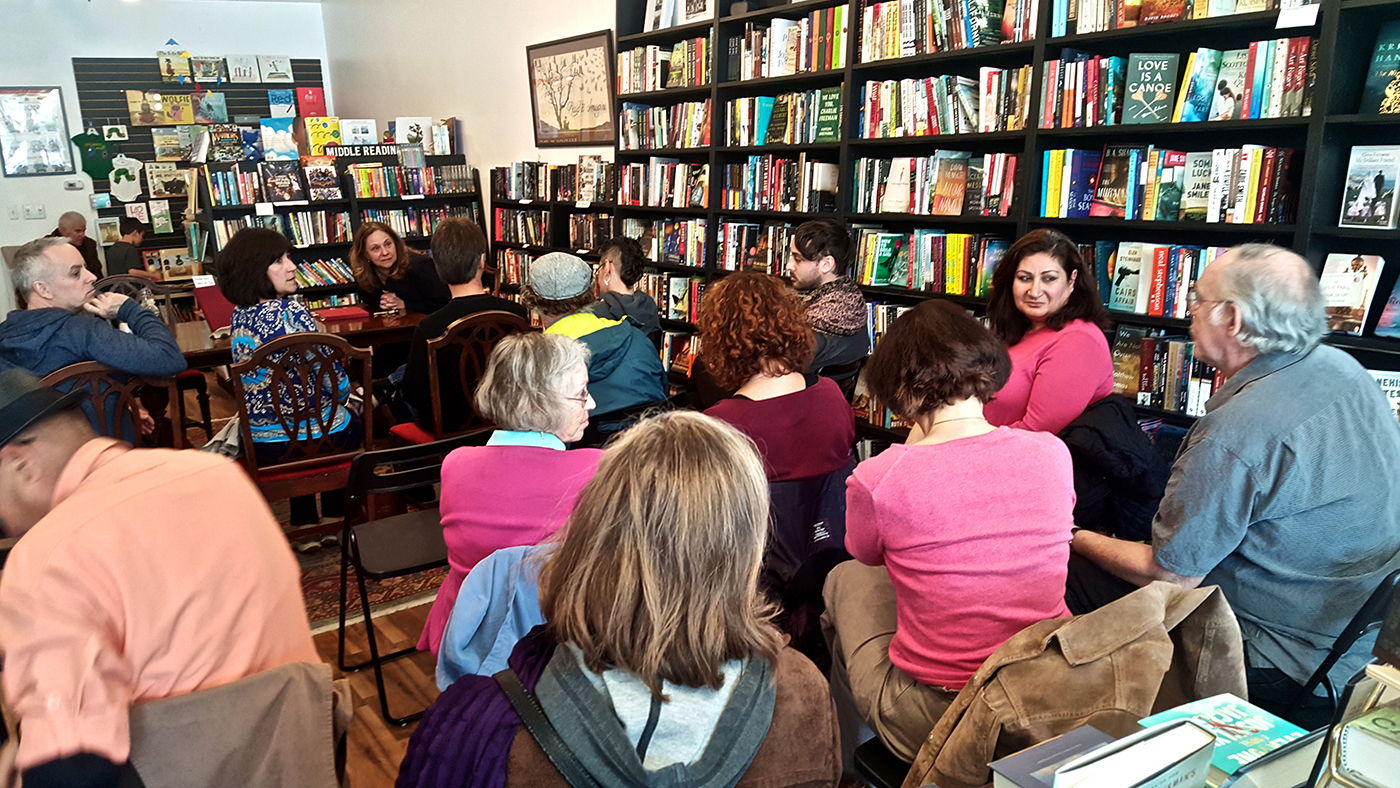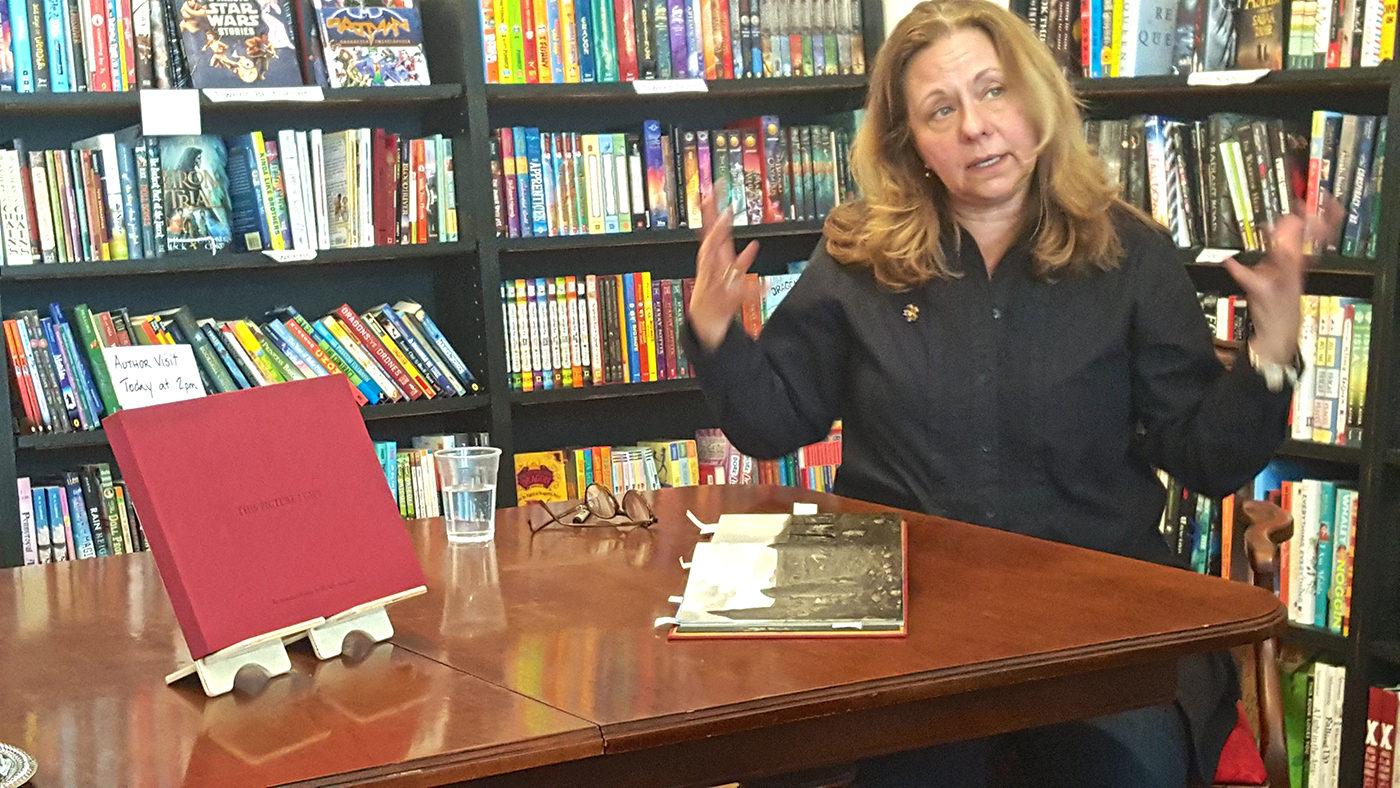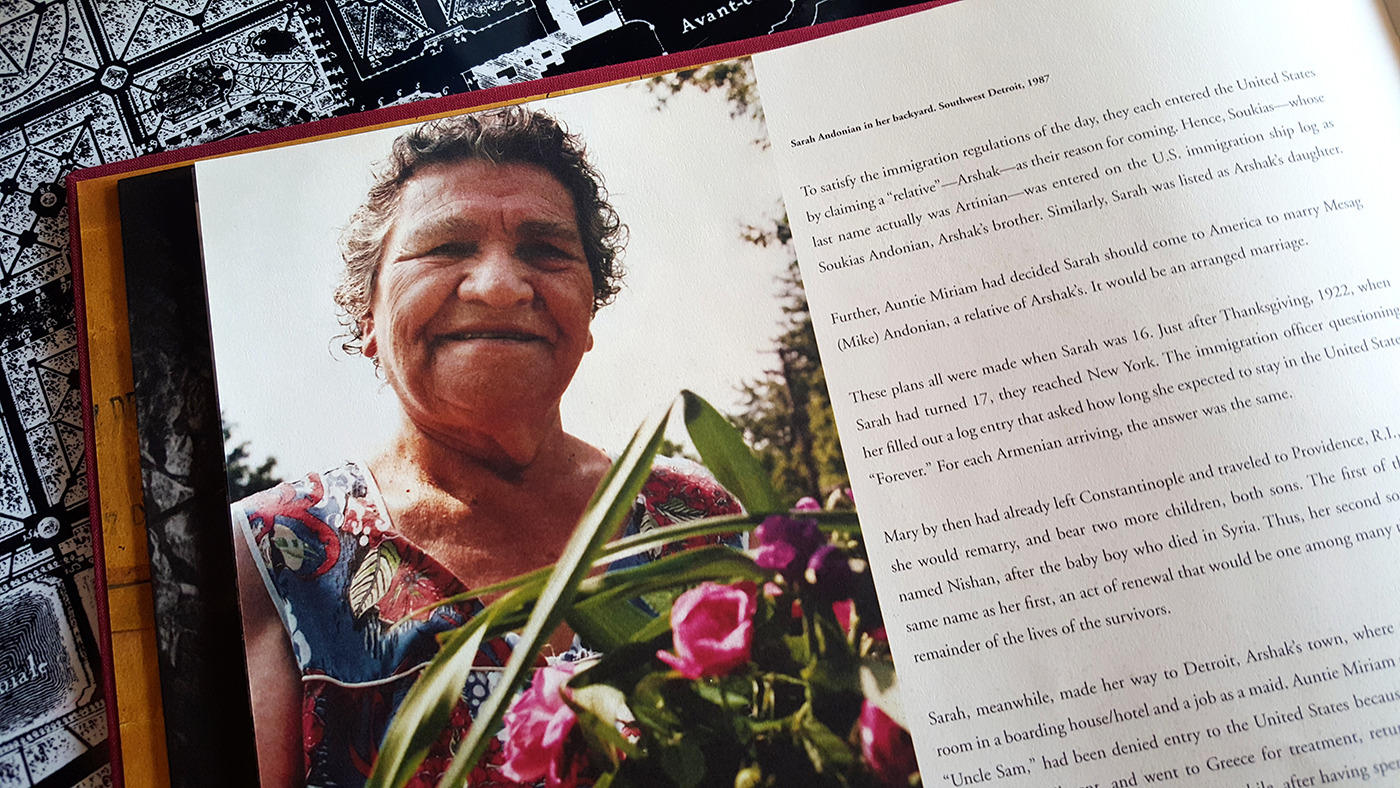
Photographer Michelle Andonian finds beauty in a brutal Armenian legacy
Above: A scene from Michelle Andonian’s reading at Pages Bookshop. All photos by Rosie Sharp.
Funded through the Knight Arts Challenge Detroit, “This Picture I Gift” is a book of exquisite photographs by Michelle Andonian, with images captured in her grandmother’s forfeited Armenian homeland. By way of introducing readings from the book, which took place at Pages Bookshop on Saturday, April 23—just one day before the 101th anniversary of the Armenian Genocide—Andonian acknowledged the inherent awkwardness in trying to talk about a book of images. Photographs, after all, are doing the work of telling stories all on their own; to add a layer of text is to compound the so-called 1,000 words each image is worth.
However, words are sometimes necessary for context in dealing with a subject as dense and emotional as the fraught political history of Armenia. Andonian managed to get into the Sebastia region (now called Sivas), from which her grandmother was forced to emigrate in the wake of the targeting and mass execution of the Middle Eastern Christian minorities by Turkish armed forces, beginning in the spring of 1915.

Michelle Andonian.
Andonian has a gift for catching things before they slip away forever—including many iterations of Detroit’s dying industry—and back in 2014, with the impending 100-year anniversary of the Armenian Genocide as a call to action, she felt compelled to attempt an image-gathering foray into Armenia. Fates aligned, opening a region that has been extremely unstable, due to a contemporary conflict between Turkish and Kurdish populations—the Kurds, who once abetted Turkey in the ethnic cleansing of Armenians, now find themselves on the receiving end of military aggression. Together with a close friend within the Armenian-American community, Andonian embarked on journey through Armenia, capturing images and visiting places that are unlikely to be open to travelers again within her lifetime.
Looking only at Andonian’s images, a bucolic, haunting landscape emerges. Rolling, fecund hills and astonishing hanging rock formations are the natural backdrop for 13th-century churches that stand in ruin, punctuated by free-ranging chickens. Portraits of the current population blur the lines between Kurdish and Armenian, suggesting that people ultimately have more in common than the petty distinctions used to divide and conquer them. The trip, which included a journey by automobile along the 2,610 miles that her grandmother was forced to walk over the course of three years during her deportation, was tremendously impactful for Andonian; one can see that she still is immersed in the work of processing the experience for herself and sharing it with other people.
This carries on a tradition established by her grandmother, Sarah Andonian, who provided a foundational and grounding relationship for Michelle’s whole family, but her in particular. The book pays homage to Sarah Andonian not only in image, recollection and text, but in title—the title is a sentiment scrawled by Sarah on the back of a valuable family portrait, one which she willed to young Michelle, by creating a signed contract on its back side. As Andonian recounts the experience of discovering the signature and sentiment, several years after her grandmother had passed away, it brings tears to her eyes.

A portrait of Sarah Andonian from “This Picture I Gift.”
Throughout Andonian’s work, there is a visual thread of grandmothers and children, and the work she has done to process the loss and preserve the memory of Sarah Andonian is a microcosm within the larger work of capturing and honoring the tense history of Armenia—one that remains under dispute and unacknowledged as a genocide for political reasons, despite an estimated 800,000 to 1.5 million Armenian fatalities. Her work is fearless and emotional, and the response of the audience that came to witness Andonian’s reading and book-signing demonstrates the wide resonance around this history within the Armenian diaspora, which has a significant population center located within Metro Detroit.
This was just one of many events in a busy April season for Pages Bookshop, which continues to support local authors, including Write-a-House poet Casey Rocheteau, Wayne State University Press flash fiction writer Desiree Cooper and renovationist Amy Haimerl (who sometimes writes for Knight Blog). Pages opened on May 2, 2015, and celebrates its first anniversary with continued dedication to the literary dialogue of Detroit. Proprietor Susan Murphy has nothing but wonderful things to say about the shop’s Grandmont-Rosedale neighborhood, and Pages is a serene little oasis, with a welcoming vibe and fully-equipped children’s section, complete with play area.
The Armenian Relief Society will hold a Mother’s Day Celebration on Friday, May 6, at St. Sarkis Armenian Apostolic Church in Dearborn, presenting Michelle Andonian as a key speaker. For further information, contact Sandra Afetian at [email protected]
“This Picture I Gift” is available for purchase from Wayne State University Press.
Recent Content
-
Artsarticle ·
-
Artsarticle ·
-
Artsarticle ·
